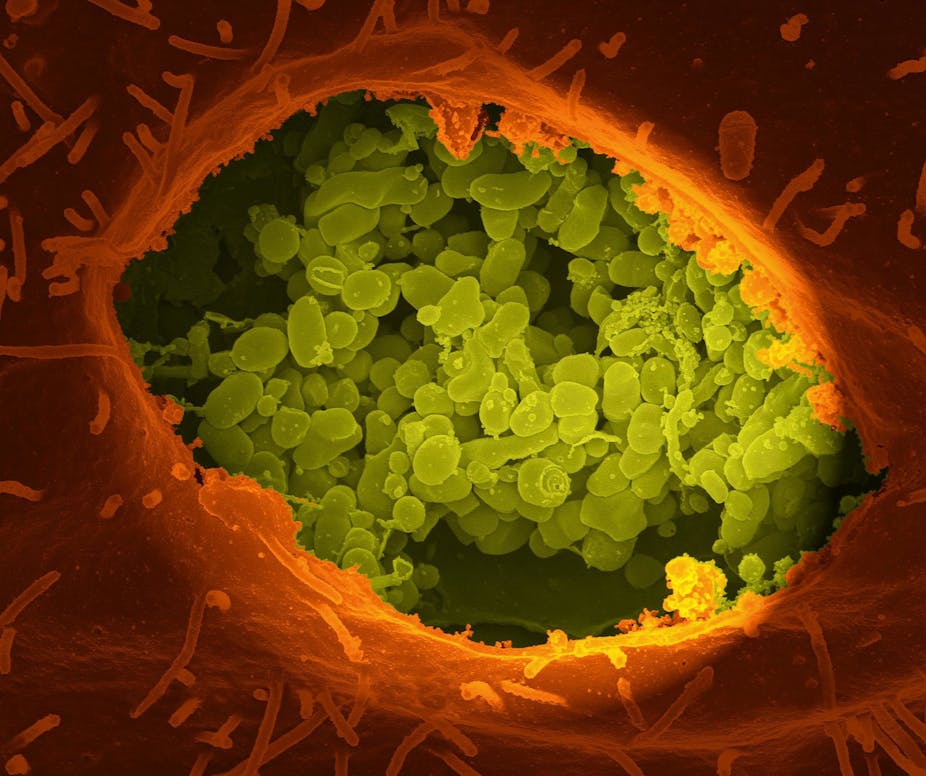The unprecedented impact that humans are having on the planet is well known to us all. Scarcely a day passes by without a media report or two on the effects of human economic activity on the world’s climate or some charismatic species under threat because of illegal wildlife trade or logging.
Our impact on the planet is so profound in fact that some scientists are urging that our period in history be dubbed the ‘Anthropocene’, owing to the fact that humans have become the dominant influence on the planet, discernible even in the geological record.
But did you know that humans are now responsible for an explosive new shift in evolution? That the changes we are making to the planet have become so profound that we seemingly hold the evolutionary fate of millions of species in our hands?
Just what are these changes that are so profoundly shaping evolution? Pollution, eutrophication, urbanisation, land clearance, habitat fragmentation, global climate change, over-hunting/fishing, invasion by exotic species, domestication, emerging new diseases and disappearing old ones, to name just a few.
Many (probably all) of them are having evolutionary effects. Impacts that can be measured today, on contemporary timescales. Some of them are playing out on a global scale - such as anthropogenic climate change - while others are more local - including pollution and growing urbanisation.
Just how rapidly and profoundly our modern lifestyle and economic systems are shaping evolution is outlined in a series of scientific studies published just last month. New research by Marina Albert and her team published in PNAS and a set of articles just published in Philosophical Transactions of the Royal Society B leave little room for doubt that humans are responsible for a new and rapid burst of evolutionary change.
A few examples will help to illustrate the point.
It’s well known among biologists that commercial fishing has had a profound impact on wild fish species. By targeting large animals, as commercial fisheries have typically done, some species have become smaller and an increasing proportion have reached maturity at a younger age and smaller size.
In urban areas, where human impact is most obvious, many studies have shown that plants and animals, native and introduced, are evolving in response to human transformation of the environment.
A famous example is so-called ‘industrial melanism’. It led to a dramatic drop in the numbers of light-coloured peppered moths in England during the 1800s when industrialisation led to pollution covering tree trunks, camouflaging dark-coloured individuals from bird predators. But when the pollution was finally cleaned up in the 1970s the situation reversed and dark-coloured moths began to be preyed upon in ever increasing numbers shifting the population accordingly.
Other documented changes include shifts in the colouration of feathers in bird populations living in urbanised areas, resistance to severe pollution of waterways by fish, and weeds growing in paved areas ceasing to disperse their seeds.
But antibiotic resistance stands as one of the clearest examples we have of evolution in action among contemporary species. It’s clearly also bad news for human health and our attempts to control infectious disease, with the race to discover new kinds of antibiotics to combat widespread microbial resistance faltering.
What about humans then? Perhaps most surprising is that these impacts will very likely alter the course of our evolution as well. We are still evolving after all, and in sometimes surprising ways. And what affects other species affects us too, as we can’t possibly escape the profound environmental changes underway at present.
We can find dramatic examples of human evolution in the past, and they have chilling parallels with the present. The best one is the development of agriculture between 10,000 and 5,000 years ago. It happened in at least nine different places, independently, and was in most cases associated with major environmental, social and economic changes.
It led to large-scale human migrations, the rapid spread and homogenisation of languages and culture, and major changes in technology. There were major shifts in human settlement patterns, lifestyles and social conditions, with people occupying smaller areas of land, living in higher densities, becoming much more sedentary, and for the first time, urbanised.
There was a major shift in the human diet including a huge reduction in the diversity of foods consumed. Dramatic increases in population growth occurred with an explosion in numbers, setting us on track for today’s growth.
And a major epidemiological transition happened whereby modern ‘textbook’ infectious diseases emerged, the result of crowded and unsanitary conditions, handling of domesticated animals, and pest species attracted to human settlements; dramatically shifting the number and kinds of pathogens experienced.
Any of this sound familiar? It should. Almost all of these changes are happening today, and at a much faster rate than ever before. Only this time round there are more than 7 billion of us, we are rapidly becoming a highly urbanised species, and our environmental impact is now global.
The signatures of these profound changes can be seen today in the human genome, with more than 86% of present day disease causing genes in living Europeans and African Americans arising as a result of changes accompanying the prehistoric shift to agriculture.
And we need to remember that most people in the world today don’t enjoy the benefits of modern medical care, so are subject to more intense natural selection than people from wealthier nations.
For the first time in our history as a species we need, and have the capacity to, think about the future. To draw on our collective past, and understand and plan for how our actions today are setting in place a chain of events that will shape our evolution for hundreds or even thousands of years to come.
We need to be urging policy makers to start thinking about the future of human health and well-being over a multi-generational timescale, not just the present electoral cycle. The future may well depend on it.

